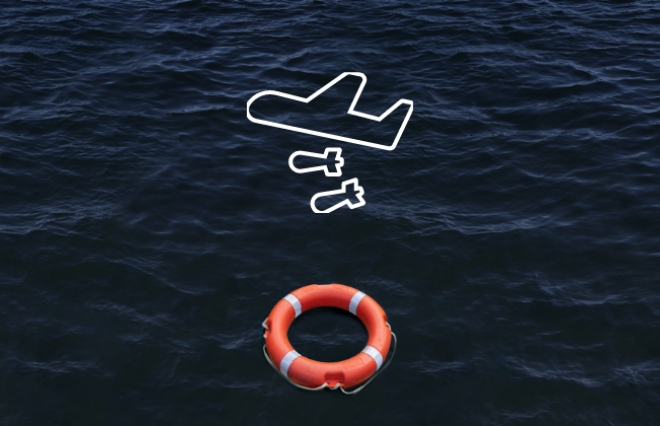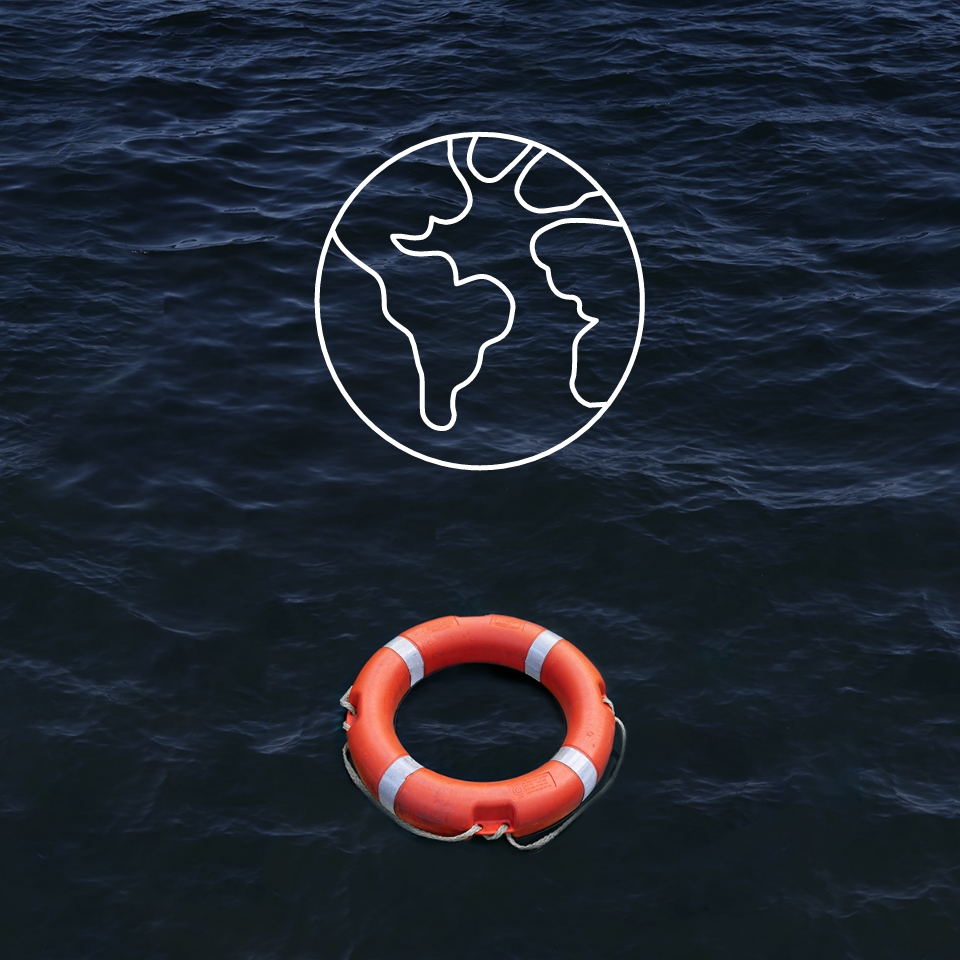This geographic Eurasian belt is home to a tense ongoing conversation between the West and Islamic civilizations, an intertwined network of global power supply lines, as well as the discreet but apparently inexorable rise of India and China over land and maritime territory.
It is also important to remember that the Indian Ocean is ringed by thirtyseven countries representing one third of the world’s population. In recent times a series of protracted and complex territorial conflicts (Afghanistan, Iraq, Libya, and Syria) have obfuscated the significance of shorelines and the ocean, whose lanes and access points make up 90% of global shipping. It is on these littoral zones that demographic growth, climate change, rising sea levels, scarcity of potable water and political extremism acquire a vividly geographic face which C.R. Boxer named “Monsoon winds from Asia”, meaning the intersection of the Indian Ocean and the West Pacific which, strategy-wise, will constitute a major hub for the twenty-first century.
This gradual shift in the balance of power could not come at a more hectic time for the territories on either side of the Indian Ocean, the Arabian Sea, and the Bay of Bengal. To further complicate matters the political future of the Islamic world, from Somalia to Indonesia, also remains uncertain. This Indian Ocean adjacent sphere is also host to weak institutions, a frail infrastructure and a young, restless populace, a portion of which are susceptible to the seduction of extremism. The area ranges from the Red Sea through the Arabian Sea to the Bay of Bengal and the waters of Java and South China.
The Indian Ocean also contains the main routes for oil and gas, as well as the principal choke points for world trade: the straits of Bab-el-Mandeb, Ormuz, and Malacca. By way of example 40% of hydrocarbons sail through the Strait of Ormuz and 50% of the capacity for all merchant fleets in the world traverse the Strait of Malacca, making the Indian Ocean the busiest transnational contact point on the planet. As with Western Europe and North America, Asia is moving towards economic integration, particularly due to the increase in trade between India and China, India and Japan, and Japan and Southeast Asia. China is also now the foremost trade partner to practically every state in the region. However, unlike in Europe and North America, there are no signs that the region will see convergence towards democratic policies, and neither is there any capacity for the creation and empowerment of multilateral regional structures such as NAFTA, the European Union or NATO, in terms of either scope or longevity. Europe and North America are also on a path towards homogeneity, whereas Great Asia seems capable of outstripping the Middle East in its heterogeneity as a region of complexity in terms of security.
Asia is home to two great historical civilizations, Chinese and Indian. They are entirely autonomous, with radically distinct identities. Historical hostility between China and India, between China and Japan, between Japan and Korea, and China and Vietnam, has also never been replaced by the concept of inclusive multilateral regional integration, either autonomous or supervised by an external power, as was the case in Europe.
The regions heterogeneity is also emphasised by the diversity of political systems on display. Unlike Western Europe or North America, and even South America, Asia is still divided by a growing number of pluralist democracies, including India and Japan, and a small cadre of authoritarian regimes including North Korea and China.
There aren’t even any common Asian values, neither political, religious, or moral, whereas, in spite of everything, Judaeo-Christian identity and republicanism have enabled Western identity to achieve a measure of stability.
A plural security community
Post-war order in the West is, in historic terms, unique. Any international order dominated by a great power rests on a combination of coercion and consent. But the international order led by the United States has shown itself more liberal than imperial and atypically more accessible, legitimate, and long-lived. Its rules and institutions are rooted in, but also undergirded by, the evolutionary forces of democracy and capitalism. These forces are expansive, with an ample cast of participants and representatives. This doesn’t mean the forces aren’t strained nowadays by a myriad of pressures, but they maintain admirable resilience despite back-to-back financial, security and health crises.
China’s rise is not however just a result of the consolidation of power and its status vis-à-vis US decline. The reality is that it faces a Western-centred system which is open, integrated, normative and has a broad political foundation. Liberal democracies are more open to taking part in security communities than other systems of government, due to their inherent political socialization capabilities and openness to shared norms. That is, the formation of pluralist security communities tends to provide a foundation for periods of stability and peace with longer life spans, as they are comprised of liberal democracies.
Portugal could play a role in the consolidation of Atlantic geopolitics and its democratic security network if it is able to meet one of the major strategic challenges that lie ahead: enforcing sovereignty in the largest exclusive economic zone controlled by a European country, on what may become the largest continental shelf in Europe and one of the largest in the world along with the Arctic Siberian shelf, the one on the South China Sea, the one on the North Sea, and on the Persian Gulf. This is key to understanding how the Atlantic may play a central role in geopolitical affirmation. This means the acquisition of sovereign rights to the extraction and exploitation or natural resources, i.e., mineral resources and living organisms that exist on the bottom of the ocean and the undersoil of the continental shelf. The national challenge a transformation like this may represent to the Portuguese economy demands timely preparation and co-ordination across the entrepreneurial community, universities, research institutions, and synergies among bodies of a like nature.
That is not to say that a country like Portugal mustn’t seek out economic opportunities or strengthen political bonds elsewhere in the world. But an Atlantic country, albeit a peripheral one in the EU, already has everything it needs to pursue its present and future potential as a geopolitical and economic linchpin, form close relationships with Africa, Latin America and North America with trade, energy, logistic and security valences that arise from the Atlantic basin. These should not be underestimated.


